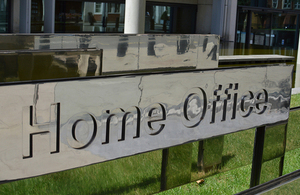Home Office wins judgment to maintain powers to keep people safe
The Home Office welcomes a High Court judgment, upholding the lawfulness of the data retention regime in the Investigatory Powers Act.

The High Court has handed down its judgment today (Friday 27 April) in favour of the government following a legal challenge by campaign group Liberty.
While the government had already conceded that aspects of Part 4 of the Investigatory Powers Act 2016 which concerns communications data retention were inconsistent with EU law, and has committed to bring forward amendments to remedy these inconsistencies, Liberty claimed that the communication data regime as a whole should be abolished.
Communications data is an essential tool for law enforcement and national security investigations. It is used to investigate crime, keep children safe, support or disprove alibis and link a suspect to a particular crime scene, amongst many other purposes.
The ruling means crucial powers which are used by law enforcement every day to prevent and detect crime and to keep people safe will be maintained.
Security Minister Ben Wallace said:
We are delighted that the Court has agreed with the government on all counts in this judgment.
Liberty has for years created misplaced fear about this legislation, and we are pleased that the Court recognises the importance of communications data in fighting crime and keeping families and communities safe.
This sensible, pragmatic judgment rightly balances all the rights of individuals with protecting people’s security. In the 21st century if we are to protect our citizens from threats by paedophiles and terrorists we must have these capabilities.
In a detailed analysis, the Court found that our current data retention regime is neither general nor indiscriminate, stating, “We do not think it could possibly be said that the legislation requires, or even permits, a general and indiscriminate retention of communications data”.
We have already committed to bring forward amendments to our regime for Parliament to debate and vote on, along with the communications data code of practice, and will do so in line with the Court’s timetable.
Communications data is used in 95% of serious and organised crime prosecutions handled by the Crown Prosecution Service and it has played a significant role in every Security Service counter terrorism operation over the last decade.